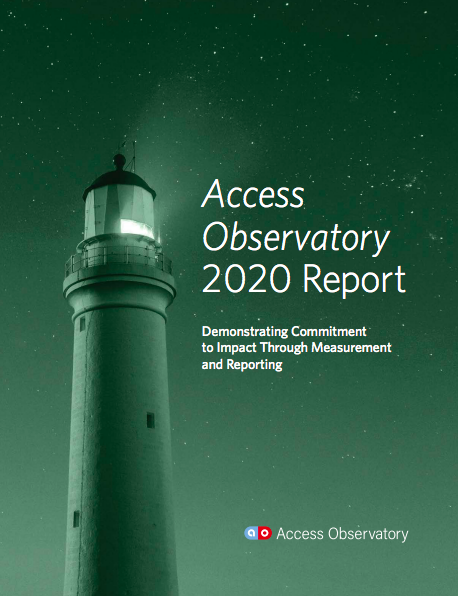Pharma Companies Are Investing in Social Good. Could They Do Better?
Few industries are as meticulous as the pharmaceutical industry when it comes to monitoring and documenting the efficacy, quality, and safety of products.
But pharmaceutical companies rarely apply that kind of meticulousness to their corporate social responsibility programs and other efforts to improve global health, says Veronika Wirtz, associate professor of global health.
“There is a widely held assumption that good intensions will lead to good outcomes,” she says.
That is now changing, thanks in part to the Access Observatory, a first-of-its-kind global reporting platform for tracking pharmaceutical companies’ contributions to disease prevention and treatment, based at the School of Public Health.
Wirtz and co-principal investigators Peter Rockers, assistant professor of global health, and Richard Laing, retired professor of global health, launched Access Observatory in 2018 as part of Access Accelerated, a collaboration between several leading biopharmaceutical companies, the World Bank, and City Cancer Challenge 2025. The collaboration aims to improve access for prevention and treatment of non-communicable diseases (NCDs) in low- and middle-income countries.
The SPH researchers developed the Access Observatory with a new measurement and reporting framework where companies provide standardized program information. The team then independently reviews the information to ensure completeness, clarity, and consistency. “Publishing our annual report is one way that we seek to establish standards and strengthen norms across the industry,” says Rockers. “We also work with companies throughout the reporting process to support and build their capacity to effectively measure and report on their programs.”
As the global health community increasingly recognizes the importance of private-sector partners in the work of improving the well-being of populations, Wirtz says, “The Access Observatory is a proof-of-concept demonstrating that defining clear expectations on measures and transparent reporting can enhance transparency and promote shared learning.”
The team, which now includes research assistant Priyanka Kulkarni (SPH’19), published their 2020 report in September.
The new report shows major progress when it comes to how many companies are providing information to Access Observatory and how much information they are providing. At the end of 2019, 75 active programs operating in 114 countries were registered in Access Observatory, and nearly half of the programs submitted data. (The inaugural report in 2018 listed 62 programs, a third of which submitted data.)
The 2020 report also identifies several opportunities for pharmaceutical companies to improve their efforts.
For one thing, only one in three programs reported conducting a formal needs assessment. “Pharmaceutical company activities should respond to local needs,” Wirtz says. “These needs should be identified and documented transparently in collaboration with local stakeholders and affected communities.”
The researchers also noted that the programs tended to be similar, almost all of them focusing on training healthcare professionals or community outreach. Pharmaceutical companies should be “leveraging their unique expertise in product development, manufacturing, licensing, and pricing” as well, Wirtz says.
In other words, Rockers says, the new report shows that pharmaceutical companies ought to get more creative with their access programs. “Barriers to access in low- and middle-income countries are complex, and new innovations that account for that complexity are needed,” he says.
While the newest report focuses on data from 2019, it also addresses concerns about how COVID-19 will worsen inequities in access around the world—and points out why this kind of rigor and transparency will be even more important amidst and after the pandemic.
“Pharmaceutical companies have received billions of dollars of taxpayers’ money to develop a COVID-19 vaccine and treatment,” Wirtz says. “Measurement and reporting of how pharmaceutical industry-led access programs for COVID-19 vaccines and treatment promote equitable access should not be a voluntary, but a required element of these programs to ensure accountability and promote learning from these programs.”
“As new vaccines and treatments for COVID-19 are approved in the coming months, global access will become one of the most pressing challenges we face,” Rockers says. “We hope that the lessons generated by the Access Observatory contribute to future efforts to ensure global access to COVID-19 vaccines and treatments.”
Read the 2020 Access Observatory report here.
